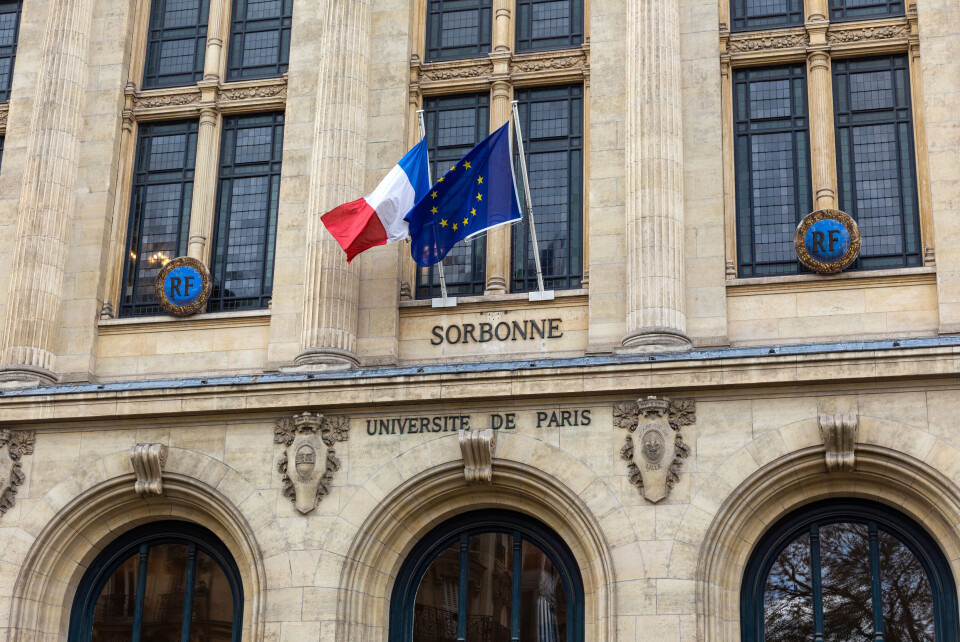-
Yellow lights for pedestrians in many cities in France - what do they mean?
The lights are being trialled in six major cities until 2027
-
New ski night train will link Paris to the French Alps
The Travelski Night Express will begin service this December and start selling tickets in May
-
Dunkin’ doughnut chain to open in France in May
Its flagship store will be in Paris’ ninth arrondissement
Macron hints at end of free university access in France
The president said French universities need ‘systemic transformation’ to compete internationally. Current costs are €170 a year

President Emmanuel Macron has prompted fierce criticism after hinting that university access in France cannot “stay long-term” the way it is, “with no cost”, in order to compete internationally.
The [potential] funding would help improve facilities, standards and working materials in order to compete with paying universities worldwide such as in the UK and the US.
Mr Macron said: "We will not be able to stay long-term in a system where higher education has no cost for almost all students, where a third of students are considered as grant holders, and where we have so much student insecurity, and real difficulty in financing a model that is much more financed by public money than anywhere else in the world, in order to meet international competition.
“If we don't solve these structural problems, we will be lying to ourselves. We need a systemic transformation of our universities.”
He was speaking on video at the university presidents’ event le Congrès de la Conférence des présidents d'universités on January 13.
He added: “I will admit that we have started to close the gaps, but we must double down on our efforts so that in ten years' time our university system will be stronger.”
Mr Macron added that it was time to reform the system as because of its low costs, students sign up and then drop out very easily and frequently throughout the year.
He denounced the "intolerable mess" of failure in the first year, where "only 50% of students sit the exams", despite the injection of new resources and the creation of 84,000 places during his mandate.
What are the current university costs in France?
-
€170 to register for a bachelor’s (undergraduate) degree
-
€243 to register for a master’s degree
Students with grants are exempt from these fees.
Read more:How does university entrance work in France?
Read more:Make sense of... French higher education
In 2018, then-Prime Minister Edouard Philippe announced that non-European students would pay higher tuition fees for access to French universities. This could be up to a “third of the real cost”, he said.
This was then up to €2,700 per year for an undergraduate degree, and €3,700 for a master’s.
While this was validated in 2020 by le Conseil d’Etat, many universities said that they would not apply the fees.
In October 2019, le Conseil Constitionnel ruled that “the organisation of free and secular public education at all levels is a duty of the state”, based on the constitutional principle of free higher education in the 1946 Constitution,
However, le Conseil did concede that “this requirement does not prevent…the levying of modest registration fees, taking into account, where appropriate, students’ financial situations”.
Political opposition
Political opponents and critics of President Macron have hit back at his remarks.
Green presidential candidate Yannick Jadot said that Mr Macron was “the most anti-young people president of the Fifth Republic”.
He told RTL: “It’s shocking. Education is at the heart of an intelligent, supportive and emancipated society, and just like hospitals, it must stay free.”
Les Républicains (LR, centre-right) candidate Valérie Pécresse said that while she wanted to give “new support to university independence”, she did not agree with Mr Macron’s comments.
She told Europe 1: “To talk about increasing tuition fees for families that are now facing real problems of purchasing power…is for me a provocation.”
Ms Pécresse was formerly Minister for Higher Education in Nicolas Sarkozy’s government from 2007-2011.
MP Bastien Lachaud, of La France Insoumise (far-left) party, said on Twitter that if “university was no longer free, then less well-off pupils would not access higher education, and knowledge would be a monopoly of heirs, and our society would lose millions of talented [minds]”.
Related articles
Make sense of... French higher education
Why are French universities often allocated a number?
French universities return to full classes for new academic year
























